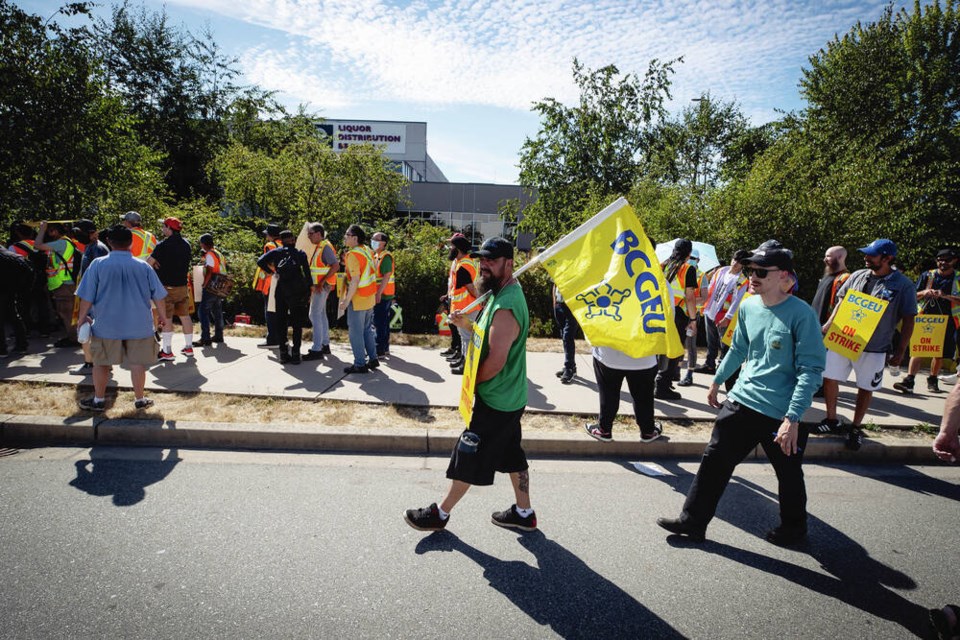The B.C. General Employees’ Union, representing provincial government workers, began targeted job action on Monday afternoon, halting work and setting up picket lines at four B.C. Liquor Distribution Branch wholesale and distribution centres.
The union, whose members include about 33,000 public-service workers across B.C., issued strike notice Friday and was in a legal strike position on Monday afternoon.
Picket lines went up outside liquor distribution centres in Delta, Richmond and Kamloops, as well as a wholesale customer centre in Victoria.
Union president Stephanie Smith has said wages are the top concern of her members amid rising inflation.
Jobs Minister Ravi Kahlon issued a statement in response to the job action, assuring B.C. residents they can continue to count on essential services being available.
He said the province is committed to the collective bargaining process and to reaching an agreement that is fair, reasonable and supports the needs of workers, residents and the government’s fiscal plan so it has the resources it needs to keep delivering services.
The contract between the BCGEU and the Public Service Agency expired April 1 and there have been sporadic talks since April 6, but the union rejected an invitation from the agency for another meeting last week, saying it would “not be fruitful.”
Kahlon’s statement said the government’s shared-recovery mandate offers “the most generous wage increase in the last 30 years” and seeks to help address the economic uncertainty everyone is experiencing with rising inflation and living costs.
The government’s proposal includes what Kahlon said is an “extra lift” to the lowest-paid workers, with a $2,500 upfront payment and average wage increases of nearly 11 per cent over a three-year term.
A statement from the union said retail liquor and cannabis stores are not part of the job action that began Monday, but the cannabis division of the Burnaby customer care centre is included, although a picket line won’t be set up there.
Smith said the union wants job action that is “thoughtful” and “impactful,” and it weighed the fact liquor sales are a “huge revenue source” for the government.
“Strikes by definition are meant to cause heartburn for the employer and that’s one of the things we took into consideration,” she said.
How long the strike continues is “up to the employer,” Smith said, and, if needed, strikes will escalate into other areas.
BCGEU includes employees in the sheriff and correctional services, public health, community health, social services and retail.
Workers deemed to be essential, however, won’t be allowed to go on strike, but will take part in other actions such as button-wearing campaigns, Smith said.
On June 22, the union received a 95% vote in favour of going on strike; it issued a 72-hour strike notice on Friday.
The government’s wage increase offer of nearly 11% over three years isn’t enough because inflation has been so high, the union says.
“[Our members] have been losing ground this entire year,” she said.
This is why the union isn’t just asking for higher wages, it wants protection against inflation with a “cost of living adjustment” built into the contract.
>>> To comment on this article, write a letter to the editor: letters@timescolonist.com



